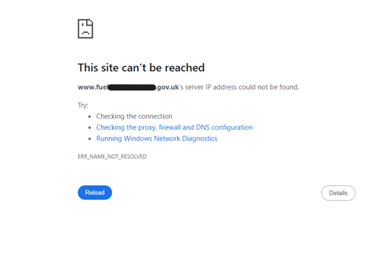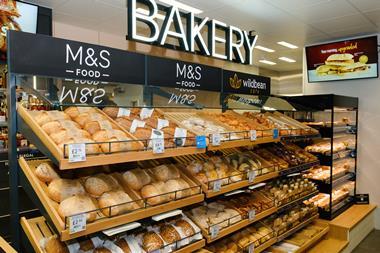As usual in March, we now have the full set of annual statistics from last year to look through and see whether we can find any pointers to the longer-term trends in petroleum retailing performance. As our monthly figures have indicated on more than one occasion recently, the overall results could best be described as ’flat’.
Annual shop sales at just over £624,000, were the highest ever recorded (again) at 1.5% higher than the historic figure for 2004, despite December 05 being 1.4% below the previous year’s even at historic cost values. But once we strip out increases in RPI, the figures look even less impressive. Last year’s ’real’ sales show an overall drop of 1.3% from 2004’s and are virtually identical to those from 2003. The individual monthly performance figures took a noticeable dive after August 2005 right to the end of the year. As has been suggested by a number of commentators, the increases in fuel prices may have simply left customers with less to spend on impulse buys in the shops.
Fuel volumes for the year also showed very slight growth, of 0.9%, compared to 2004. And our ’average site’ hovered at just below the five million litre point, just as it did the previous year. Cast your mind back to September 2005 and remember the panic buying of the ’mini fuel crisis’ - it hardly caused a blip on the overall results for that month, quite unlike the original ’fuel crisis’ of September 2000. Recent articles in the press have reproduced figures from the Department of Transport suggesting that the total annual mileage of UK drivers rose by just 0.3% during last year, and that in the last three months of the year there was actually a fall in mileage for the first time since the ’fuel crisis’ of 2000. The environmental lobby will no doubt see this as a positive move and encourage the Chancellor to keep fuel taxes high in the forthcoming Budget. As far as petrol retailing is concerned, the results are already being felt, as retailers are squeezed on both fuel and shop sales.
One figure which, at first glance, may seem slightly surprising is that overall wage costs last year rose by only 3.2% to £69,500. The explanation would appear to be that many site operators are increasing their own hours at work, effectively unpaid, rather than fully staffing their sites.
As far as profitability is concerned, as usual we would not place too much emphasis on the actual figure of £19,592 for the year recorded in the database. More important than the value itself is the trend: 2005’s figure was 6% lower than 2004’s, which was itself 18.5% lower than that from 2003.
Overall then, a very depressing picture of the industry from last year. While we have yet to see any firm figures for the number of forecourts still trading across the UK in 2005, it is quite probable that it will have now officially dropped to below 10,000 - a significant figure when we recall that as recently as 1990 the Institute of Petroleum (as the Energy Institute was then known) reported that there were 19,465 sites in the UK. As we see oil companies either pull out of retailing altogether (Texaco), or go full circle back to direct-management (Esso), it is difficult to find much cheer in these figures.
However, there is just a possibility that 2005 will be seen as something of a watershed year in this industry. For the first time since the early 1990s when the hypermarkets became significant players, pump prices became less of a differentiating factor between the various retail outlets. The very high fuel price affected every retailer and customer more or less equally, and nobody could afford to buy market share by cutting retail margins any further. In other words, are we, perhaps, seeing the emergence of a level playing field for the first time in years?
There is little sign of any likely improvement in the wider trading environment. Fuel prices seem set to stay high and may yet rise further. The retailers who will survive, and even thrive, will be those who can maintain maximum efficiency of operation coupled with a quick response to their local market.
Thankfully there are some independent networks, appearing out of the bulk site sell-offs of recent months, which are making a go of running sites on this flexible offer, tight control basis. We wish them luck, and offer any assistance that they might need.



























No comments yet